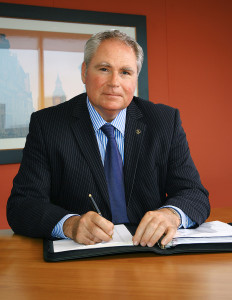
From: The Will Company
The England and Wales High Court’s recent judgment in Leonard v Leonard (2024 EWHC 321 Ch) has broadened the scope of the fourth limb in the Banks v Goodfellow test for testamentary capacity to cover any disorder of the mind, such as dementia, that could poison the testator’s affections. It is one of three recent cases that affect the law of will validity, the others concerning undue influence.
The High Court recently handed down judgment in the case Leonard v Leonard, whereby Mrs Justice Joanna Smith upheld the claimants’ claims that their father did not have capacity to execute his final will in October 2015 and did not know of or approve of its contents.
The case provides clarification on the Banks v Goodfellow test, the common law test for testamentary capacity and highlights the importance and weight that expert evidence plays on evaluating capacity in will validity challenges. The case also serves as a pertinent reminder for solicitors of the importance of carefully taking instructions from elderly or vulnerable people and giving clear advice.
Background
The deceased, Jack Leonard, died in 2019 leaving four children from his first marriage. He was survived by his second wife and her children and grandchildren. His estate was worth around £5.4 million.
Jack made a will in 2007 and then a later will in 2015. It was agreed by all parties that Jack was suffering from dementia when he made his will in 2015. The effect of the 2015 will was to gift a significant amount of his estate to his second wife, his stepchildren and step – grandchildren, meaning that his biological children would not benefit as much from his estate.
The claimants (his biological children) claimed that Jack did not have testamentary capacity to make his 2015 Will and did not approve of nor have knowledge of his contents. They claimed that his decision to depart from his 2007 Will and benefit Margaret’s family at the expense of his own children was out of character.
What is testamentary capacity and what is the test for it?
For a Will to be valid, the testator must have had the necessary mental capacity to make a Will. The test for this remains as set out in the 1870 case of Banks v Goodfellow. Recent decisions have highlighted that this remains the legal test, but that the Mental Capacity Act 2005 can act as a useful cross check.
For a testator to have the requisite capacity to make a will, they must satisfy all four limbs of the test:
- Be able to understand the nature of making a Will and its effect.
- Be able to understand the extent of the property of which they are disposing.
- Be able to comprehend and appreciate the claims to which they ought to give effect.
- Have no disorder of the mind that perverts their sense of right of their natural faculties in disposing of their property by will.
The court found that limb one and limb four had not been satisfied and therefore the will was invalid.
The will drafter was a chartered tax advisor who had not seen or spoken to Jack for over a year before he executed his will in 2015. It was a complex Will that included trust structures which would have required a high level of understanding. There was also evidence that his cognitive abilities were starting to deteriorate. The will drafter did not follow the golden rule as set out in Kenwood v Adams which states that where there is an elderly testator or someone who has been seriously ill, it is advisable that a medical practitioner assess the testator’s capacity to make a will and that they make a clear record of their findings.
The court held that Jack had failed the first limb of the test and that he had been incapable of understanding the nature and the effects of his will. The defendants claimed that the first limb was the ability to understand the effect of the will in question, in the ‘abstract’, rather than the specific provisions.
They claimed that if the testator was able to have an understanding that a will was a formal document that would express their wishes as to how their property is dealt with after death, then this first limb is satisfied. Mrs Justice Joanna Smith rejected this and held that the first limb requires considerations of the provisions made in the specific Will. This is a wider interpretation than has been understood previously.
The court also held that Jack had failed the fourth limb of the test and held that his diagnosis of dementia would have no doubt influenced his ability to make rational decisions, including his decision not to benefit his biological children as much as he did in his earlier will. This broadens the scope of the fourth limb so that it does not simply relate to insane delusions but extends to any disorder of the mind which may poison one’s affections.
Mrs Joanna Smith also considered the role of expert medical evidence in cases regarding testamentary capacity. In this case, both medical experts had agreed that Jack had dementia at the time of creating his 2015 Will, but neither of the experts were able to say with certainty that he had testamentary capacity on the specific date he had created his Will, as neither of the experts were able to examine all of his medical history throughout his lifetime.
It was therefore held that analysis from medical experts is not wholly conclusive, and the court should draw its own decisions when taking medical expert evidence into consideration. Ultimately, the test for testamentary capacity is a legal one rather than a medical one and medical evidence should be treated holistically and specific to the case.
What can we learn from this case?
Banks v Goodfellow is analysed comprehensively in this case and remains the law to assess testamentary capacity. It broadens the scope in which the limbs of the test are considered but by no means opens the door to more challenges. The decision by the court to take into consideration Jack’s dementia diagnosis is an important and forward thinking one as it reflects medical developments in illnesses that affect capacity, which is particularly important with an ageing population.
Speak to Sussex Will Writers about organising your estate, Will and Lasting Power of Attorney.
Click to Call us on 01903 533681
or get in touch by emailing: info@sussexwillwriters.co.uk
 Sussex Will Writers
Sussex Will Writers
T: 01903 533681
M: 07734 744886
E: info@sussexwillwriters.co.uk
Could you do with some FREE, sound advice on:
- Writing a Will – What do I need and how much does it cost?
- Creating Lasting Powers of Attorney – If I was incapacitated who can act on my behalf?
- Property Protection Trusts – Can these really save Care Home Fees?
- Pre-Paid Funeral Plans – With so many to choose from how do I decide which plan is best?

There is so much confusion on these vital areas of estate planning, that sometimes just a chat with an expert in the field can clear up misunderstanding and set out the way ahead, without all the legal jargon.
Or complete the form below
Steve Worsfold
Affiliate Member of the Society of Will Writers
Advising on Wills/Trusts/Probate/Powers of Attorney

Mobile: 07734 744886
Office: 01903 533681
Email: steve@sussexwillwriters.co.uk
Website: www.sussexwillwriters.co.uk
Protecting What’s Precious to You,
Now and in the Future
Sussex Will Writers is proud to support Dementia Friends,
an initiative of The Alzheimers Society
Our business is certified ‘Safe to do business with’ and ‘Code compliant’
by the UK’s largest regulatory body for Will Writers, The Society of Will Writers.
Steve Worsfold has been an Affiliate Member of the Society for 15 years.



